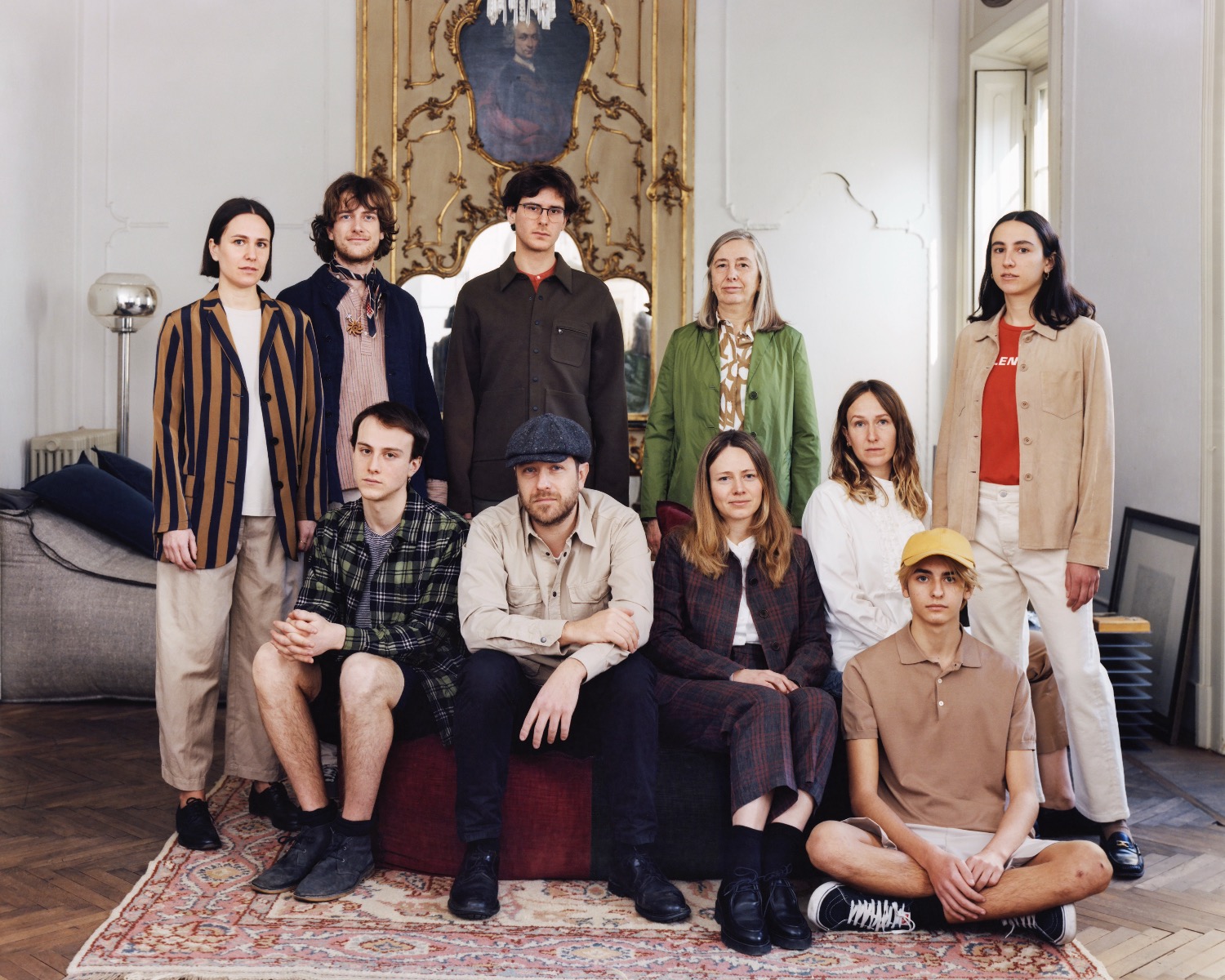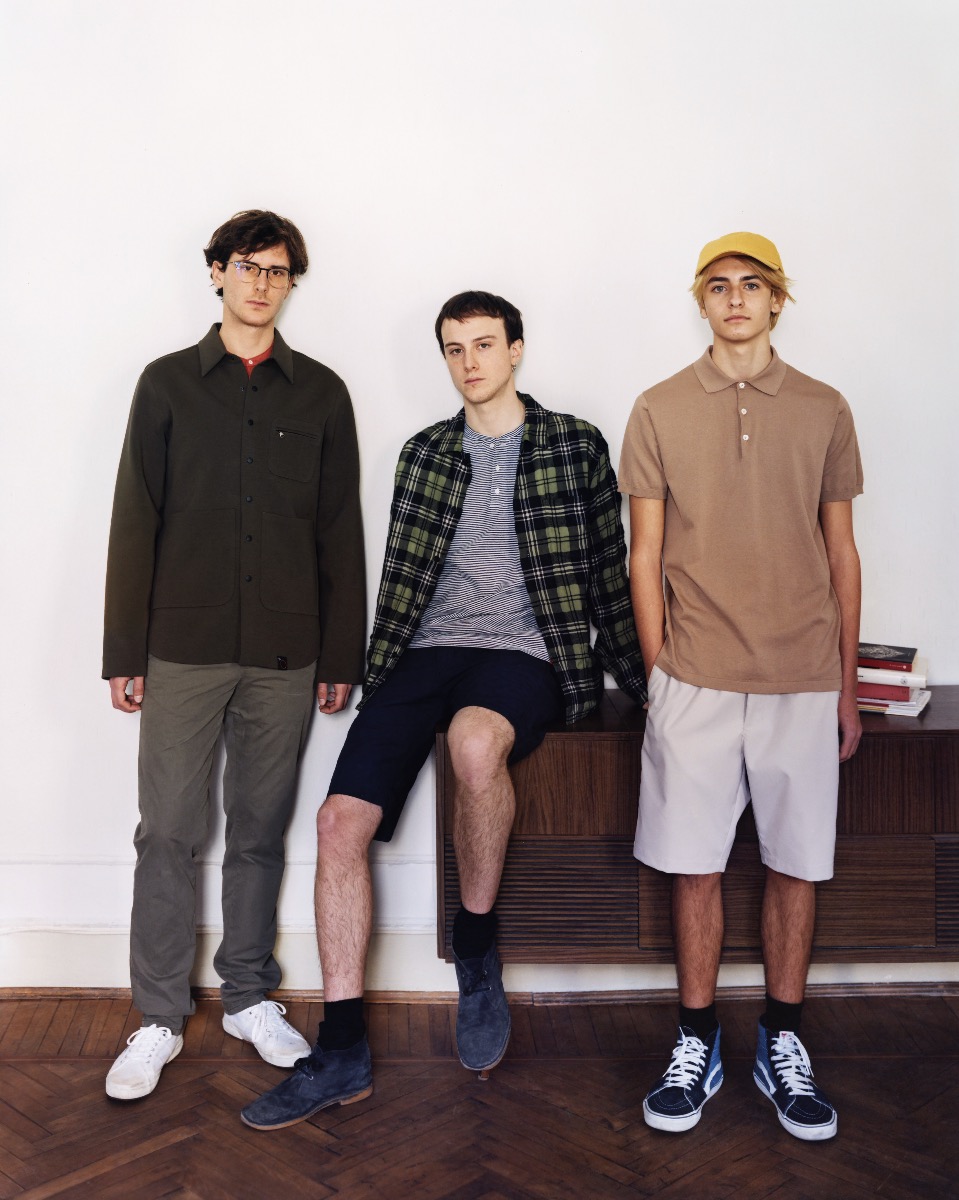LEDDI FAMILY
uniting what is already united
The Leddi family has Piedmontese origins but has been rooted in Milan for more than seventy years. The grandfather, Piero Leddi, was a painter from the town of San Sebastiano Curone, in the province of Alessandria. The grandmother, Lina Leddi, is a pianist and music teacher originally from Tortona. The couple moved to Milan in the 1960s, where much of the family lived until 2019.
The grandparents started out working as graphic designers in the advertising industry before they each went on to pursue their own craft: Piero worked as an artist in a studio, Lina taught music in middle school. They had four children: Lorenzo - musician and entrepreneur; Tommaso - musician and composer; Ernesto - graphic designer and artist; Colomba - stylist and fashion design teacher. The family also comprises ten grandchildren: Sebastiano, Marvi and Marta; Anna, Pietro and Francesca; Viola and Piero; Mario and Teresa, who were later followed by four great-grandchildren: Enea; Anita and Bianca; Rocco and Nino.
A story of courage, creativity and union. And union is a very important concept when it comes to family. It should not be understood as an empty, neutral, or predictable noun, nor should union be thought of as a solid, imperturbable state. A family is united when their story is driven by desires, dreams and ambitions. When the origins of the family are not only roots but also seeds: new arborescences, which move - even in an unpredictable way - and write a story projected into the future. Family as infinity, as an ever-expanding galaxy in the universe. Future, because a family, however you choose to understand it, is always people on the move. Even before recollection comes prophecy, before memory comes foresight. It is, in fact, looking forward, looking far into the distance. Being together but always one step ahead of ourselves: being contemporary with our future, without ever forgetting the past.



THEORY OF MIND RESEARCH GROUP
studying robotic familiarity
Being part of a family is like being a scientist.
We are about to enter the laboratories of the Research Unit studying Theory of Mind at the Department of Psychology at Milan’s Catholic University of the Sacred Heart. Founded by Professors Olga Liverta Sempio and Antonella Marchetti, the department is now led by Professor Antonella Marchetti. The primary focus of the Research Unit is the study of Theory of Mind in the field of developmental and educational psychology from a life-span perspective. To achieve this objective, multiple areas of inquiry are to be investigated. In fact, the unit adopts a theoretical perspective that looks at affection, sociality and culture as fundamental elements in a person's psychological development. The study into the mental ability theory, therefore, goes hand in hand with the study of other fundamental constructs or topics such as emotional awareness, decision making, reasoning bias, understanding figurative language, neurodegenerative diseases, which also impair the neural circuits of social competence, and the relationship with robotic artifacts (particularly social robots).
Professor Antonella Marchetti explains: “Social robotics was one of the first topics we decided to address when the group was established. At that time, it represented a real novelty: social robotics was, and still is, new territory, a relational geography to be discovered. For a series of curiosities and contingencies, we asked ourselves a question: when robots are able to learn through models that we implement, and we put a lot of our own characteristics into them, such as the ability to understand others, what impact can they truly have on the people who encounter them? In fact, as already happens when I stand before a human being and wonder what their movements mean and how I will react to them, the same thing will happen more and more with anthropomorphic machines. How does a robot feel about me? And what do I feel about said robot?".
"Soon the world will be cohabited by humans and machines, in a much more intimate way than we are experiencing today. And then we'll need to be clear about the kind of relationship that we want to establish with them. Will we accept, for example, having a robot as our carer, doctor or teacher? Will we allow ourselves to be surgically operated on by them? If there are robot professors in the future, will our children believe that the things a robot teaches them are true? All this is part of a concept that we can summarize with the term
"Trust", and which, to simplify, we can translate as "confidence". Epistemic trust and learning aptitude: are we able to feel this towards a robot? And if not, is there anything we can do to improve this?”
The answer is, of course, yes. And the group we're meeting (also) addresses this, employing anthropomorphic machines in sociological research.

Researcher Federico Manzi explains: “When we talk about "trust”, we’re referring to something that can happen very early. Our idea in this regard is that trust must always be accompanied, or in a sense "built”.
Especially when it comes to anthropomorphic machines: there is no such thing as absolute, innate trust; trust necessarily takes shape from our experiences, since we have stories that allow us to trust. We’re talking about “accompanied trust”, where the human part is indispensable. We humans have always been called upon to question how the material artifacts around us interact with us and our development. For so long, there has been (and still is) talk about art, classes and the arrangement of desks in classrooms, for example. Everything that surrounds us. Because we are, at the same time, both human beings and artificial beings: we are us and what surrounds us and with which we are called to relate. And social robots are a part of this world, so we need to research their intentions, their meaning”.
They themselves are the first to implement the arguments of their research in the same group dynamics. Marchetti continues: "There is a very close connection between the topics that we study and the personal inclinations of the group members”. The group studies - to varying degrees - the ability to predict the mental states of others, "but I think a large part of our functioning as a team is due to our focus on the relational dynamics within the group itself”.
It's critical to address problems whilst respecting the hierarchies of the group, just as in a family. But at the same time build an elastic and open group, accepting ideas from everyone, even the youngest or least experienced.
"What makes this group a family” - comments Federico Manzi - “is also the ability to see each other, to want to grow, and intrigue others. To put yourself in the shoes of others. In this way, there is mutual growth; yes, we are a family. A diverse family, but a family that feels a strong sense of belonging".
The group of researchers believes that we make mistakes and we make them together. We lose and win together. We experience stress and have fun together. This is the definition of a family.
As unique a family as any.


